Adult Children, Aging Out, & Self-Compassion
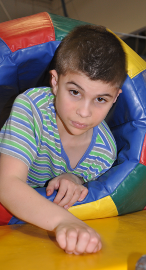 ROAR
ROAR
YOU that come to birth.
And bring the mysteries,
Your voice-thunder
Makes us very happy.
Roar, lion of the heart,
And tear me open.
~Rumi
It has taken me two decades to write this, and maybe that is because it has taken me this long to finally accept how disabled my autistic son is. Maybe I could not face the sense of living loss for fear that if I truly accepted the severity of his condition (intellectual disability and non-verbal) and his additional movement disorder (Tourette’s—which began after a tonic/colonic seizure at age sixteen, and led to physical decline), that I would lose hope in him, lose what I have held onto for so long—that my “lion of my heart,” the “roar” would forever be silenced. I have imagined and created in my mind his voice-thunder since he was my sweet “baby James” even though all this time, he has been mute. Perhaps I could not slow down enough to just be with who he really is instead of, as Amy Lutz describes in her memoir, “chasing his intact mind.” A mind I thought I could find inside his human body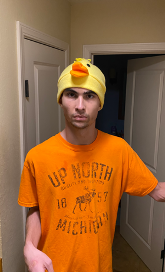 through a myriad of interventions that were time-consuming and expensive, and that only deepened my sorrow and despair when they yielded no long-term improvements in his condition. This part of my story is not unique; many parents whose adult children are on the severe end of the spectrum or have co-morbidities like obsessive compulsive disorder have made similar journeys.
through a myriad of interventions that were time-consuming and expensive, and that only deepened my sorrow and despair when they yielded no long-term improvements in his condition. This part of my story is not unique; many parents whose adult children are on the severe end of the spectrum or have co-morbidities like obsessive compulsive disorder have made similar journeys.
My son, James, will turn twenty-four on February 15. In every way, he is my labor of love—I was in labor on Valentine’s Day in the new millennium as my boy (who was so desired and so labored for) made his way into my husband’s and my world and into our hearts. His roar has stretched my heart and my mind in ways I could never have imagined possible.
There is no question that autism adulthood has been very difficult in many ways. When James turned eighteen, he did not graduate from high school with so many of the neighborhood kids and cousins his age—yet another milestone missed along with so many he will not traverse, and so many in his childhood. No “first word,” “first sentence,” or any “first” in the realm of verbal communication. However, we do celebrate that at twenty-three, James has a mean and somewhat painful pointing finger. He
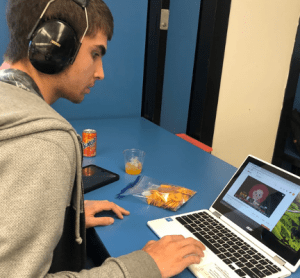
communicates in gestures that we are very attuned to: thumb up, thumb down, more, all down, sleep. He can write and type on his iPad his preferred places to eat—In-n-Out Burger among his favorites. In the summer of his twenty-second year, after almost
two years of “Google school” during the COVID pandemic, society deemed it appropriate for my son to “age out” of his incredible school for those on the moderate-to-severe end of the autism spectrum, the Creekside School.
He had been the oldest student in the school for more than ten years, and had the great fortune to learn and grow with an incredible team of educators, therapists, support professionals, and peers. For all those years, Creekside was his second family.
Losing his school routine and his second family twenty months ago has been very disruptive for him and, by extension, our family. Falling off the cliff and trying to find grounding with the very few supports available for adult children with disabling autism, has been jarring. With the dearth of day programs that provide one-to-one support and lack of person-centered thinking approach to each child’s profile, it is no wonder that families of adult children like James feel the crumbling cliff and no soft place to land.
Yet, James’ pre-frontal cortex is still growing and needs stimulation, direction, and nurturing. We are now piecing together support, daily routines and therapies, and recreational activities for him. His mama bear has become his calendar and activities manager yet again.
Being a parent is humbling and, at times, heart breaking. There are very few experiences in life that collect battle wounds like the scars of child rearing. At the same time, there is also nothing that compares to the pure joy that arises in the smallest of moments watching as your children thrive; it is your heart in its stretch zone, cracking open wider than you ever thought possible. It’s that very vulnerability that exposes one to the abyss of human suffering. Deep love and deep pain. For me, my son’s ASD diagnosis at seventeen months of age, and then his intellectual disability diagnosis at age five, felt like arrows shooting straight into my heart. I didn’t waste any time becoming the Mama Bear my son needed. I left my full-time career as a public health educator at Stanford. In addition to being his mama bear, I became my son’s #1 play partner, educator, case manager, IEP developer, and interpreter. Most importantly, I became James’ voice and his forever biggest fan (all the while, also mama to his baby sister, Margaret Grace).
In my experience and those of my dearest comrades on this autism journey, as parents of children with severe ASD, we are charged with responsibilities that far exceed any others we have known professionally or personally. There are many uncertainties ahead. Yet what remains is the steadfast and undying commitment that I and my husband have to continue to be our son’s voice. We can say with certainty that we will be his voice (ROAR), his protectors and advocates as long as we walk on this earth. We will love him desperately, all the while suffering with pain and loss and fear for the future—both his and ours.
My dear friend, Feda Amaliti used to say, my anger has a vulnerable underbelly, and it is deep sadness. Anger’s purpose she said, is motivating; it is what gets me out of bed in the morning, it is how I learned to work the system and get Mu the services and supports he desperately needs. I have since reflected on how wise and curious my friend was, so beyond her years. She spoke these words regarding the purpose of suffering: And then it became clear. Sadness is glue—it bands us together. When I look at another mom and sense her pain, I can’t turn my back, I can’t walk away. I HAVE to stay. I have to listen. I have to be with her in her suffering. And when she can’t go on, I have to light the spark in her and keep her fighting and keep myself fighting too. There is no way I could do autism alone. You see, being together in that sadness of autism is doable. Being alone in the sadness of autism is not. Being together in battle is doable. Being alone is battle is not.
In her living and her dying, I am humbled and in awe of Feda and her autism story, a story so like my own. She has sparked a flame in me to continue to do the work that she summoned us all to do—to widen the circles of compassion, starting with our own self-compassion and bringing it forward out into the weary and desperate communities of differently-abled and unique abilities, so deserving of compassion.
My deepest hope and intention is to continue on the path of integration of loss with the life I live as an autism mom and the deep and abiding love and devotion I have for my son (and my beautiful, now adult, daughter), and to find joy in the intersection of loss and life. I think the only way to reach joy is to fully experience pain—no detours. As Joseph Campbell says: Find a place inside where there’s joy, and the joy will burn as brightly as pain.
I have a passion for and find joy in widening the circles of compassion and growing the network of those who can embody and facilitate the growth of this movement, not just for my own well-being, but for so many of my loved ones and mama and papa bear soulmates. I am invigorated by the sense of meaning and purpose it engenders, despite the challenges I face.
A huge part of my journey going forward as an autism mom in the post-aging-out adult world for my James, is opening myself up to equanimity and acceptance. It involves opening up with self compassion, and accepting his strengths and his disabilities, and trusting that I can stay open through it all. It is a process of allowing it all without bracing or protecting myself. My home base is equanimity, and that is when I can hear the voice thunder in his presence and the ROAR, lion of the heart, tear me open to the life that is right here.
~Sara Kole
If you are interested in an eight-week self-compassion journey, please reach out to me at: skollou@mac.com

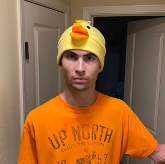
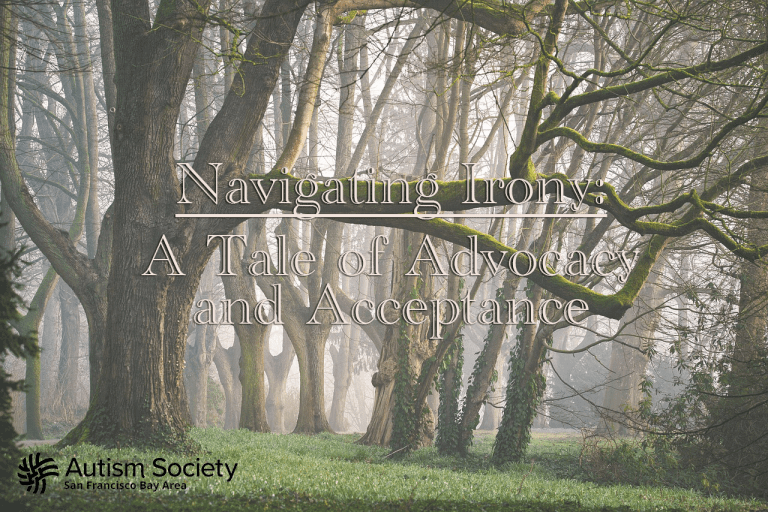

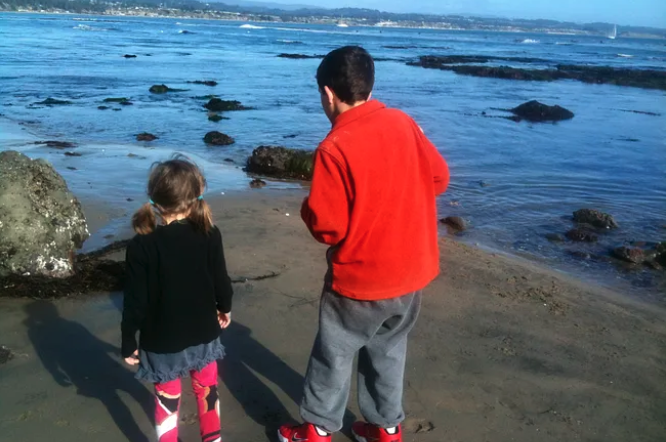
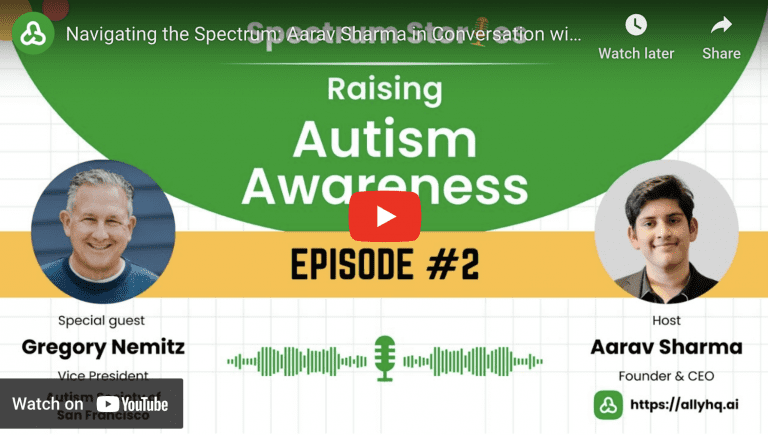
I’m lost with words. Your article really speaks my mind, Sara. Only exception is that my future can only get worse and I’m already 78. We have tried so so much for years, yet there’s hardly any progress. Yes, at smallest moments, we have tiniest fleeting joy
On top of that, except for our own family, there is no support if not shame and ignorance from the aunts and uncles.
Thank you for speaking for us, parents of the low end spectrum.